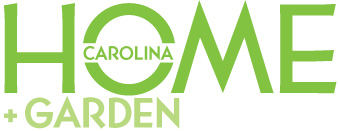Master Gardeners are on site to answer your questions
By: Margaret Butler
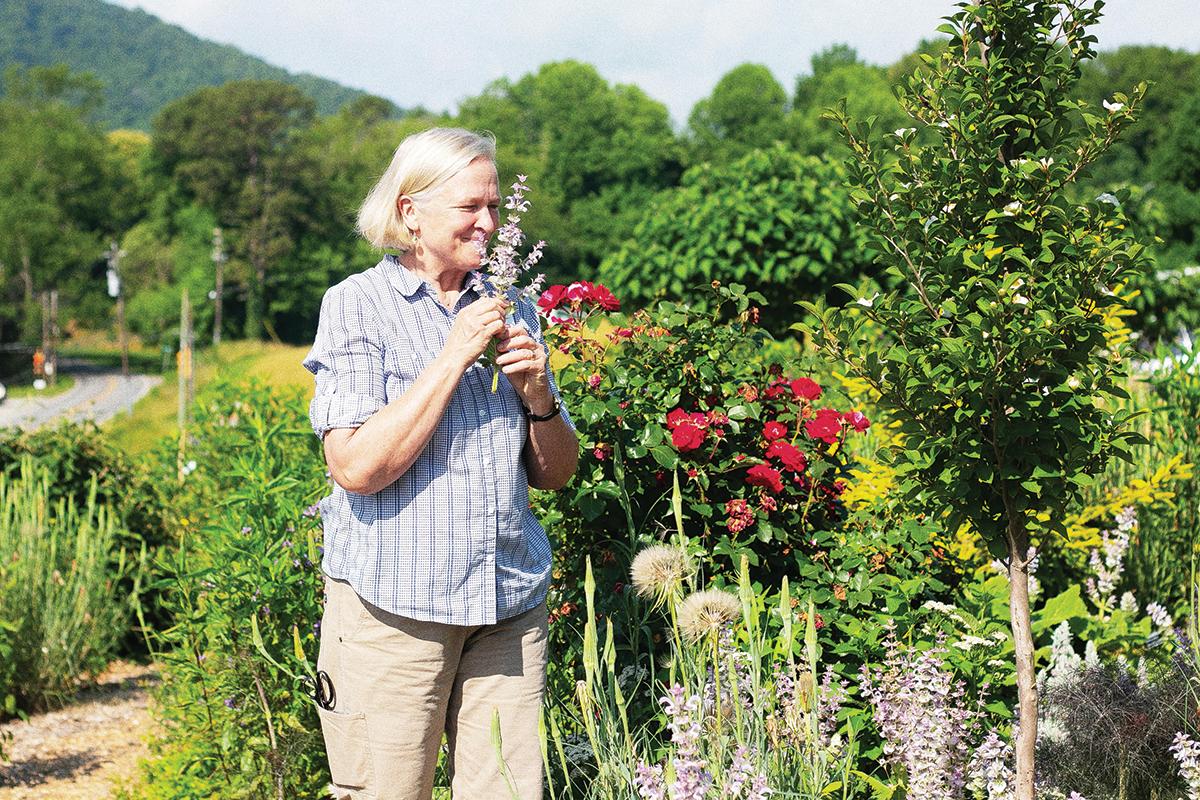
Photo by Margaret Butler
Every Wednesday morning the grounds of the Buncombe County Extension Office hum as a group of dedicated Extension Master Gardener Volunteers buzz about the property. As they water, weed, harvest, and examine plants for pests, they share tidbits about their personal lives, exchange gardening tips, and offer to trade plant cuttings.
They are the lifeblood of Buncombe County’s The Learning Garden, an onsite teaching garden west of Asheville that includes a rose garden, vegetable garden, “four seasons” garden, and other installations.
Brought together by a love of plants, the Master Gardeners share a common goal: to teach the community about gardening. Alison Arnold, Buncombe County Agriculture Extension Agent and horticulturist, leads the bunch.
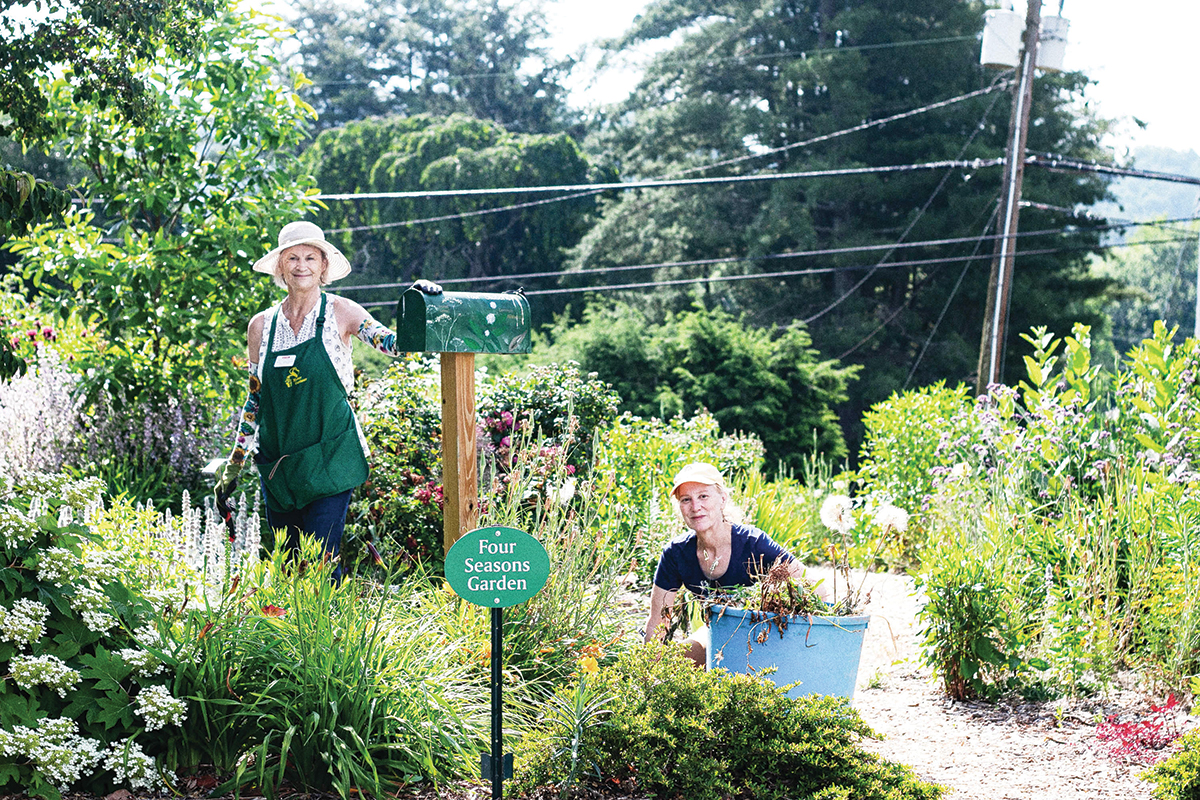
Photo by Margaret Butler
Alison, what brought you to the Extension Office?
Alison Arnold: When I was in college, I realized I was interested in working with people and plants. I worked at the North Carolina Arboretum for 16 years and then found my way to the Extension Office. The Extension’s mission for outreach is a perfect fit — I get to work with people and talk about plants all day. I’ve been working with the Master Gardeners in Buncombe County for seven years.
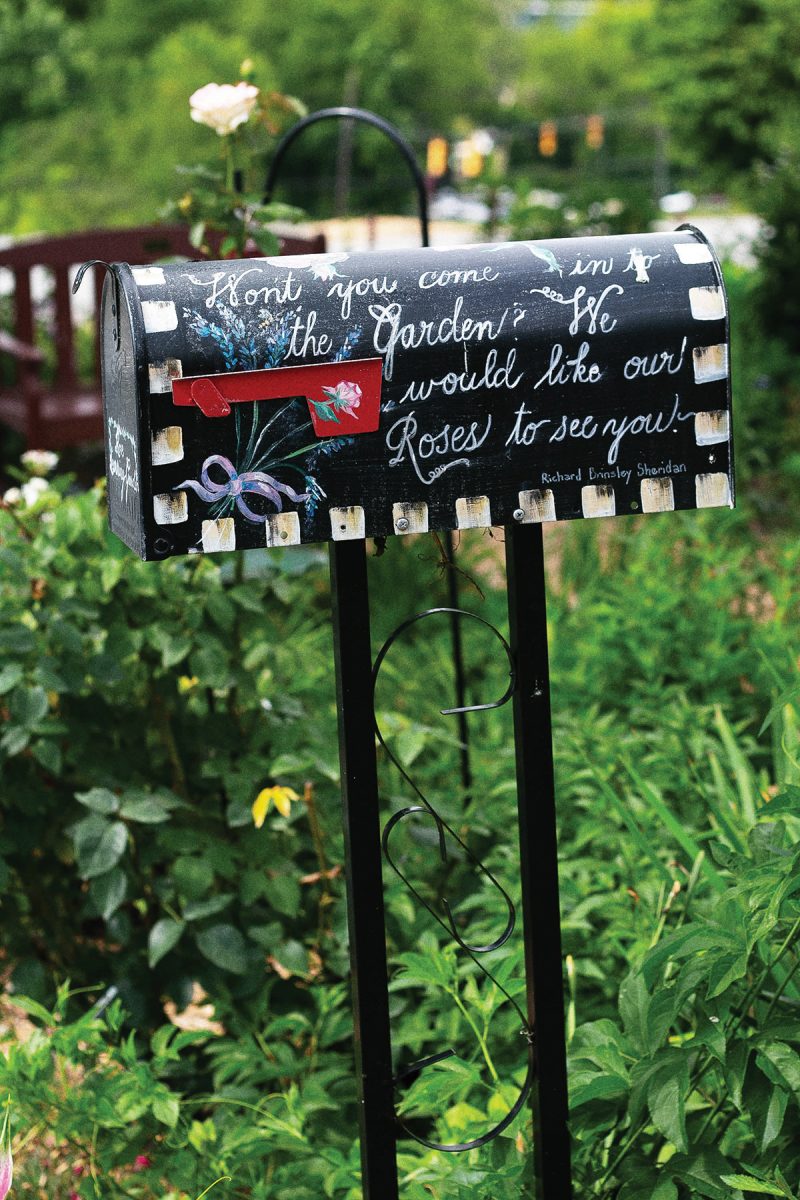
How did the Master Gardeners get to this location?
We had a small demonstration garden at Manna Food Bank, but when Manna expanded their parking, we lost that space. When the extension office moved here in 2016, the gardeners were thrilled. Today, we have eight gardens and a composting site. Our volunteers have big appetites for gardening, but we try to moderate the growth so we don’t overextend ourselves.
Tell us a bit more about the National Master Gardeners Program.
The National Master Gardeners program originated out of the Washington State Extension Office decades ago as a way to share gardening information. In North Carolina, we currently have 101 Extension offices, but not all have gardening programs.
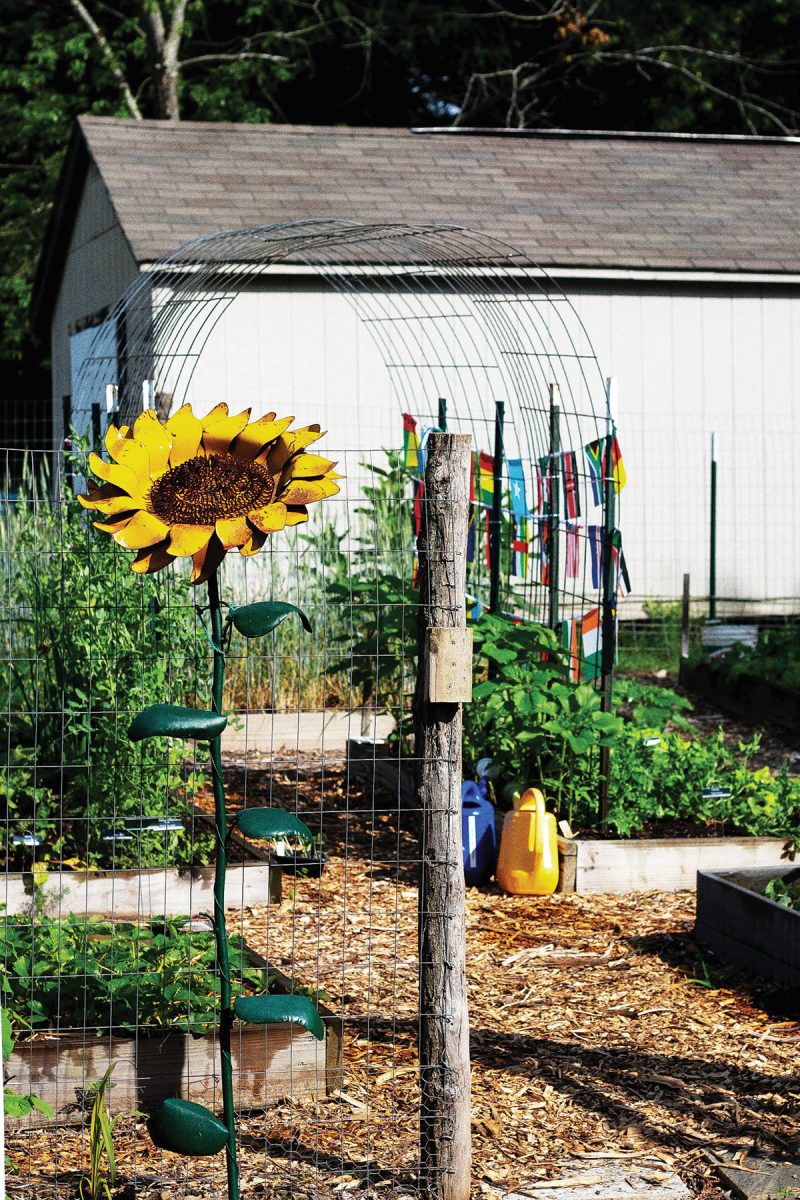
What does it take to be a Master Gardener volunteer?
An interest in gardening, of course, but also a willingness to work with people, share information, and teach others. To become certified, you have to complete a 12-to-14-week training program, take an exam, and participate in a 40-hour internship. The program covers everything from caring for plants to diagnosing insects and diseases to testing soil.
And they don’t just garden…
Right. The volunteers help in a variety of ways. They offer plant symposiums and horticulture classes in the community, answer questions over e-mail or on our Garden Helpline, raise money for public schools to build or expand gardens, and even work with the VA to provide horticulture therapy.
The garden Helpline is a great resource. What do people usually call about?
Oftentimes, people will call with a [pest] question and our first order of business is to identify the plant [they’re concerned about] — it’s not just “green with leaves.” Once we’re able to identify the plant and the insect, we determine whether it’s a real problem for the garden. Many beneficial insects are helpful to the environment, so we don’t want to kill them. … In the past, clients used to call with a problem and immediately ask what they can spray. We’re not hearing that as much, which is fantastic. As home gardeners, we can tolerate a bit of damage, so we’re encouraging people to be aware of their environmental impact.
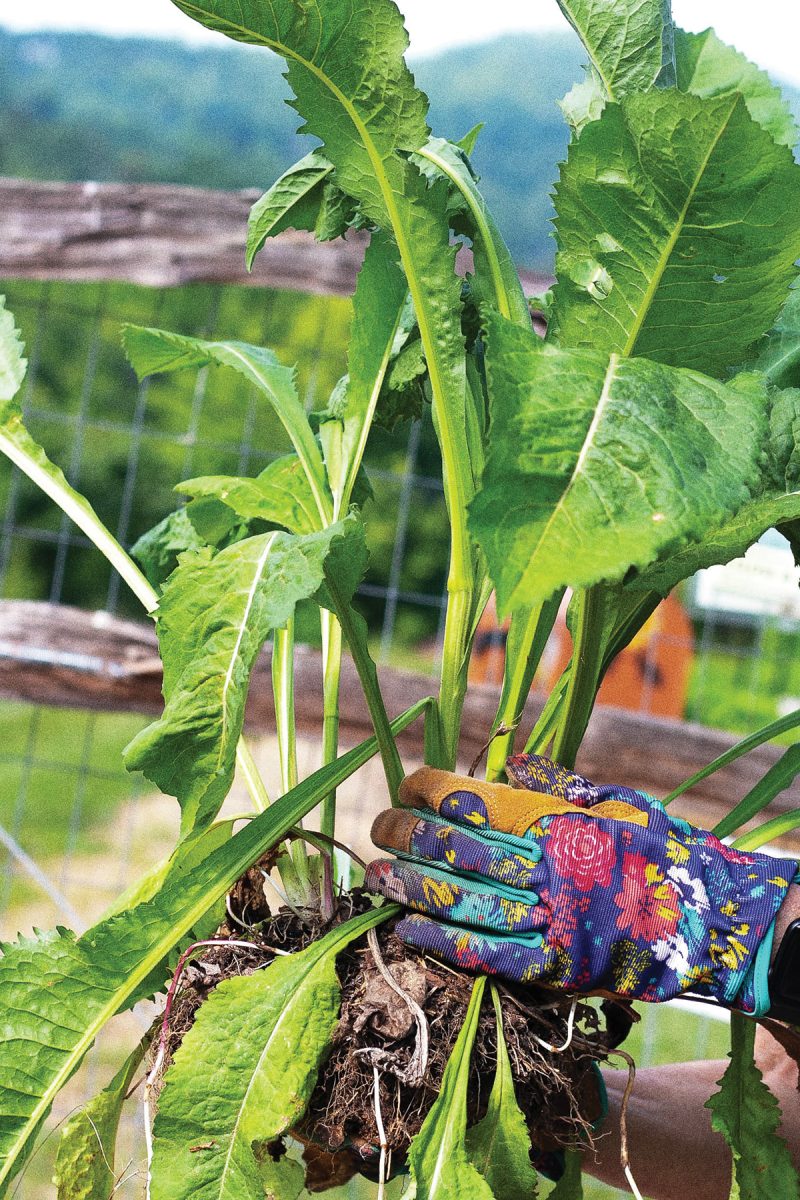
What’s coming up for The Learning Garden?
One of our newest programs [happens] on select Wednesday mornings. The gardens will be open from 9-11am with classes, tours, and demonstrations. Master Gardeners will also be on site to answer questions. We hope to encourage young families to visit the gardens, and we look forward to introducing a kids’ corner.
Key takeaways from The Learning Garden?
Education is at the heart of what we do. We not only teach people how to grow plants, we teach them how to problem solve. We want to help home gardeners find resources for their questions. Ultimately, we want to empower them to make decisions about their gardens.
The NC Cooperative Extension Buncombe County Center and Office is located at 49 Mount Carmel Road, Suite 102, Leicester, open Monday through Friday, 8am-5pm. For more information or to ask gardening questions, e-mail buncombemg@gmail.com, call the Garden Helpline at 828-255-5522, or visit the Helpline desk indoors from 10am-2pm. “Drop In and Learn” happens Wednesdays at the Learning Garden from 10-11am. The garden opens to the public at 9am. No registration required. For more information, including a list of additional upcoming events, see buncombemastergardener.org.
